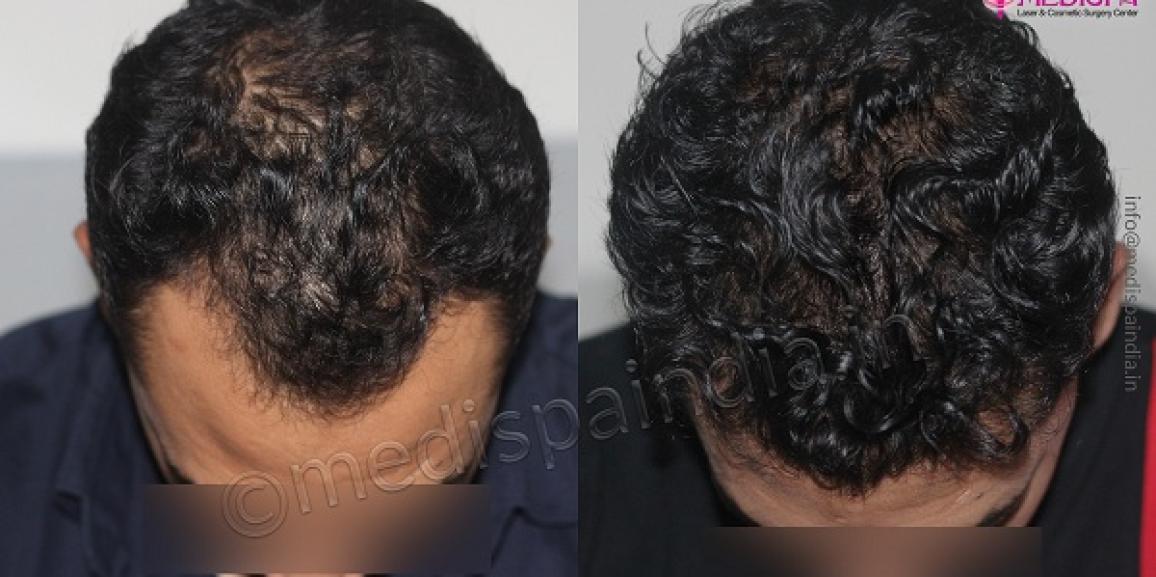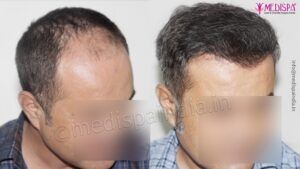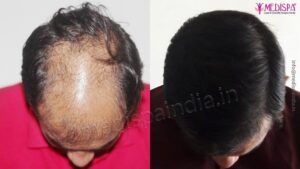
The majority of people who have hair loss are eager to have a hair transplant because it is an elective treatment and they want a long-term fix for their problem. You can choose a hair transplant at any stage of hair loss, but for certain people, the surgery may or may not be feasible.
You cannot decide to have the operation done overnight since you need to speak with a qualified surgeon to see if you are a good candidate for it or not.
Therefore, while deciding to have a hair transplant treatment, you must first actively look for a qualified hair transplant surgeon who can honestly advise what can and cannot be done based on your hair loss scenario and other related circumstances. The second step is to schedule a consultation to go over your treatment options for hair loss.
In terms of cutting-edge and top-notch services, hair transplant in Jaipur has evolved far beyond other cities. The city is known throughout the world for providing the best hair restoration services because it is home to a small number of internationally renowned hair transplant surgeons. The intense competition among clinics has also significantly decreased the hair transplant cost in Jaipur.
Medispa hair transplant clinics in New Delhi and Jaipur are well-known locations for high-quality hair transplants. Thousands of patients have already trusted them, and it is simple to confirm the effectiveness of the therapy through internet evaluations, patient feedback, and former patient galleries. Owner of Medispa and in-house surgeon Dr. Suneet Soni is renowned for his rigorous treatment planning and results that look completely natural thanks to a perfectly shaped hairline.
Hair transplant procedure
Hair transplant: a minimally invasive surgical method that consists of two main steps: carefully transplanting the harvested hair follicles after a successful harvest of the hair grafts. In essence, the process requires that hair grafts be harvested from specific parts of your body that have permanent or DHT resistant hair roots. When transplanted to a desired bald spot, DHT resistant hair roots produce results that are lasting because they give the donor supremacy because their genetic components are located in the roots themselves.
Ideal candidacy for hair transplant
One of the most frequently asked questions on the internet has a variety of answers. There are many details that must be documented in order for the process to be successful for you, so the final determination regarding your candidature can be made at the consultation following the completion of the inquiry. Several extremely essential factors that determine your eligibility for a hair transplant are outlined here.
- The nature of hair loss: As we have discussed, the formulation of a treatment strategy depends on whether hair loss is permanent or temporary. If the hair loss is very temporary, you might not need any medical attention, and with a healthy diet and the right care, it will undoubtedly stop in a few months. On the other hand, if the hair loss is irreversible, you will need medical attention and, if other conditions are right, a hair transplant may be the best option.
- Hair loss stability: The doctor you’re looking for will determine if your hair loss is steady or progressing. You are most likely a good candidate for a hair transplant if your hair loss is stable. However, most doctors ignore these concerns and conduct hair transplants in patients who are in unstable ongoing hair loss situations as well, which results in a failure hair transplant. Actually, if a hair transplant is done in an unstable situation, the surrounding healthy hair will start to fall out, and the outcomes won’t be as expected because the bald spot will continue to grow.
- Sufficient hair follicles for harvesting: This is one of the most crucial factors for people whose hair transplant is approved. Because the hair transplant operation uses your own hair follicles, you must have a sufficient number of them in your donor locations to provide enough covering. You are probably an excellent candidate for a hair transplant if the donor area is sufficiently dense.
- Procedure expectations: If you have realistic expectations, you should be happy with the results of the hair transplant. The hair transplant surgeon clarifies the reasonable expectations you can have from the treatment and helps you make a choice based on those expectations.
- The patient’s overall health: When recommending a hair transplant, various medical issues that could slow healing or result in hair loss are taken into account. Your systemic health will likely be fine, making you a suitable candidate for a hair transplant.
- Hair loss causes: During the consultation, the doctor will identify your hair loss’s causes either through investigation or testing. You are definitely a suitable candidate for a hair transplant if the reason for your hair loss supports one.







